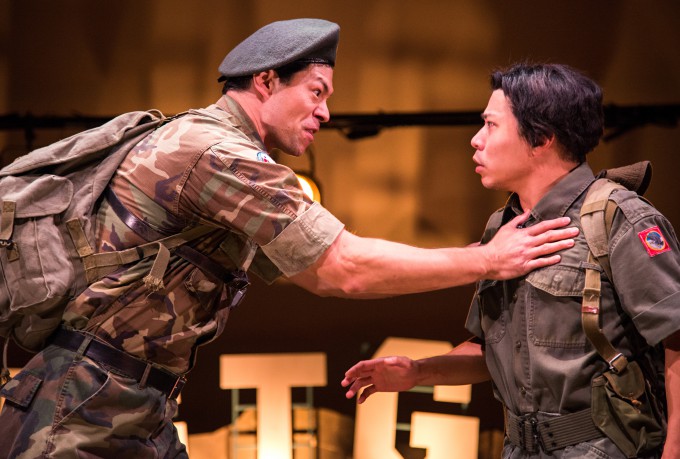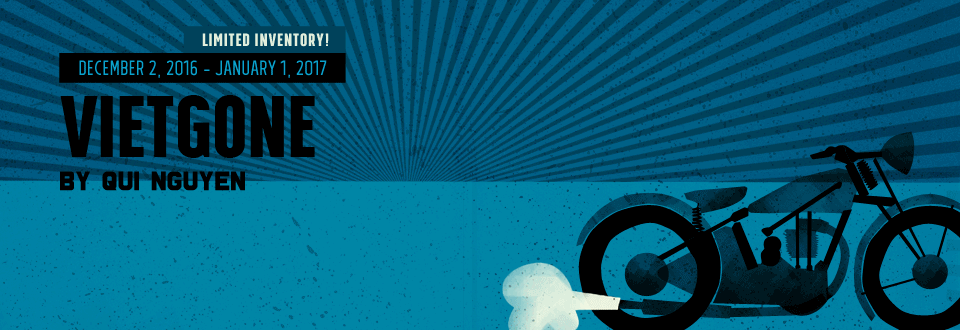(L-R) James Ryen (Quang) and Will Dao (Nhan) in Seattle Repertory Theatre’s Vietgone. Photo by Navid Baraty.
Review: Vietgone Play- Seattle Repertory Theater
by Julie Pham
My parents had lives before I was born. This was just one of the big revelations that I got from watching Qui Nguyen’s play, Vietgone. The play is loosely based on his parents’ lives in the months just before the Fall of Saigon through when they met and struck up a romance at a relocation camp in Arkansas. Vietgone is playing at the Seattle Repertory Theater through Jan. 1 and much of the show is sold out.
As a 1.5 generation Vietnamese American, I don’t ever really think about my parents having a role outside of being a parent. That may sound self-centered, but I think it’s also typical of many Vietnamese refugees of their generation. Our parents’ story starts with them sacrificing for their children.
I did not enjoy most of the play. I didn’t appreciate its humor, its sexuality or the characters’ use of profanity laden raps. If my parents watched the play, I don’t think they would understand much of the language used.
But I really appreciated the play. I appreciated the strong, independent female characters who refused to be victims and martyrs, the interactions between Americans and Vietnamese from the Vietnamese perspective, and the sexy Vietnamese male lead who is not the stereotypical effeminate Asian man. I know my parents’ generation would appreciate how Qui Nguyen presented an alternative interpretation from the south Vietnamese perspective of the Vietnam War to a largely non-Vietnamese American audience.
Growing up in the US, I am familiar with how American media depicts the Vietnamese as being victims of this war. This play illustrates not only the difference between the south Vietnamese and the American perspective of the war, but also difference in thinking across generations of Vietnamese Americans.
It wasn’t until the end of play, when the playwright, the son, interviews his father about the war was I able to relate to the characters because I have interviewed my father too.
But it’s ok that there were many parts of the story I couldn’t relate to because the point is, it’s not all about me. My parents had their own lives before I came along.
Julie Pham



